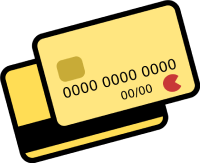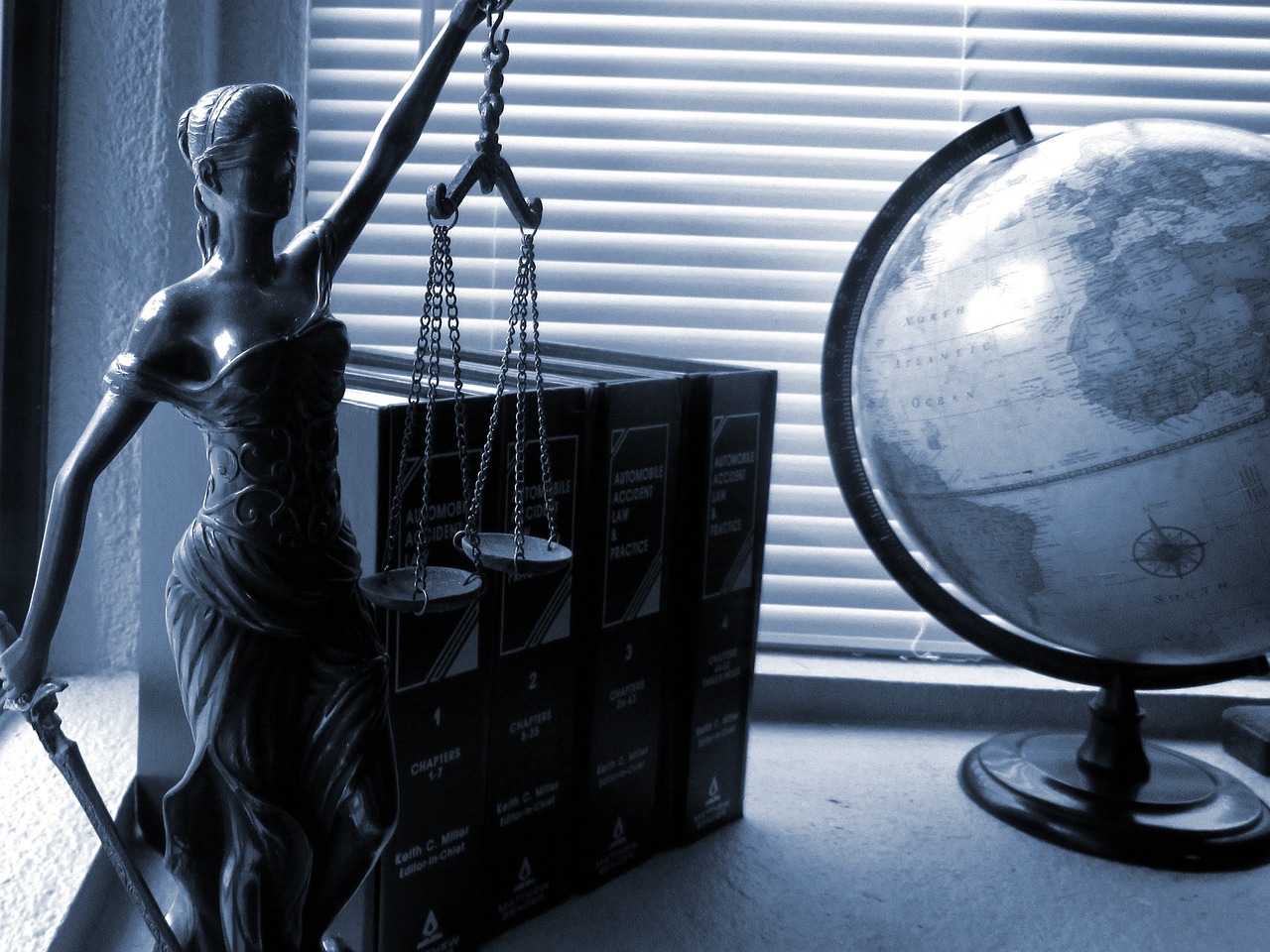Credit Card Dispute
I. A Guide to Understanding the Credit Card Dispute Process
Credit cards have become a go-to financial tool for people, whether they’re building credit scores or looking for a quick way to make a purchase. However, there will be instances, where an unauthorized transaction or a process error takes place. This often results in a credit card charge dispute, where you contest the charge and the issuing financial institution resolves an issue.
If you’ve ever tried filing a credit card transaction dispute, you have the Fair Credit Billing Act (FCBA) to thank for. Enacted by the US Congress in 1974 as an amendment to the much older Truth in Lending Act, this codified law is designed to protect consumers from unfair billing and collection processes for their credit accounts. Its most prevalent application is in the use of credit cards or charge cards.
In this article, we’ll go over the FCBA, how it works, how it’s designed to protect you, and how it governs your dispute credit card experience.
A. Definition of the Fair Credit Billing Act
Basically, the FCBA is what lets you dispute a charge on credit card transactions. If you find unauthorized charges or transactions for undelivered goods and services, you can file a dispute with the merchant, the creditor, or your issuing bank.
The law also explicitly states that the provisions of the 1974 amendment to the Truth in Lending Act only apply to open-end credit. This refers to a credit fund that can be repeatedly borrowed, repaid, and taken out again, much like revolving credit funds. Also, this scope means that this particular law does not apply to closed-end credits, such as car loans and any type of mortgage.
In layman’s terms, the FCBA is designed to protect consumers from different types of billing errors that include, but are not limited to, the following:
- Unauthorized charges
- Incorrectly dated or billed charges
- Calculation errors
The law also outlines the rights and liabilities of the different parties involved, particularly that of the consumer and the creditor.


B. Why you need the FCBA
First and foremost, the Fair Credit Billing Act provides consumers like you the right to contest or dispute credit card transaction instances that you think are unauthorized or inaccurate. With this law in place, everyone involved is also expected to fulfill certain criteria and follow a set of processes to resolve the matter.
As a consumer, this allows you to hold your merchants, suppliers, and creditors liable for their promises and advertisements—especially if you’ve entered into an agreement or a transaction with them. Imagine purchasing an electronic gadget that is promised to be delivered to you in two weeks. If the two-week period has passed, and you haven’t heard from the merchant, you can ask for help from the bank in recovering the credit card payment that you’ve made. A qualified credit card dispute lawyer can help in a situation like that.
In the modern cashless society, credit cards are becoming increasingly popular ways to make recurring payments or to purchase stuff on an installment basis. If the FCBA was not in place, attempting to recover incorrect credit card charges would be difficult, if not outright impossible. Remember, you will be up against creditors and banks if that unfortunate scenario were to happen.

C. Understanding how the Fair Credit Billing Act works
As an amendment to the Truth in Lending Act, the FCBA is one of the rules that banks and other financial institutions must follow. Aside from the fact that banks are obliged to follow the provisions of the FCBA, as stipulated in Section 8 of the Federal Deposit Insurance Act, the federal government also tasks the Federal Trade Commission in charge of overseeing compliance and issues surrounding a credit card dispute.
It’s worth noting that it also lists down the responsibilities of the consumer in order to trigger the protection offered by the Fair Credit Billing Act. This means that you still have to do your share in order to compel the banks to process and settle your credit card charge dispute.
II. When Does the Fair Credit Billing Act Apply?
The first thing to note about the Fair Credit Billing Act is that it only applies to open-end credit accounts. It usually covers credit cards, lines of credit, and charge card accounts. To make it easier to remember, car loans and all types of mortgages are immediately excluded from the provisions of this act.
After the first criterion explained above, the FCBA primarily applies to credit card disputes. Also known as a credit card chargeback, this is the scenario where a consumer contests or disputes a transaction, often with the issuing bank. The bank is obliged to file that dispute, and whenever possible, overturn the sale. It also falls on the financial institution to recover the funds paid to the merchant to complete the return of funds to the aggrieved consumer.
A. Definition of an Account in Dispute
Once a dispute has been filed by the consumer, the concerned credit line is considered an “account in dispute.” This account is placed in a 90-day timeframe where the issuing financial entity must investigate and arrive at a decision.
The FCBA states that the creditor must recognize or acknowledge a consumer’s written notice of dispute within 30 days. They can also correct the error whenever applicable, within the same time period. After the 90-day period, the creditor must have resolved the issue or explain to the consumer why the credit card charge dispute is considered invalid. This is typically when customers contact a credit card lawyer.

B. Scenarios Covered by the FCBA
Under the open-end credit accounts, the following billing errors are considered under the FCBA:
- Unauthorized charges or transactions reflecting on your billing statement
- A billing statement entry with inaccurate or incorrect information, particularly date and amount.
- Accounting errors committed by a creditor
- Unsent or unissued billing statement to the borrower as required.
- Charges for products and services paid for but not delivered.
- Charges for products and services paid for but not up to agreement terms
- Lack of a statement credit for a returned merchandise, or uncredited payment by a borrower
It is worth noting that the FCBA doesn’t explicitly cover consumer issues regarding the quality of goods or services delivered to the consumer. Therefore, disputing a billing error on the basis of FCBA provisions is different from a refund request stemming from disagreements about policies and merchant services or a change of plans.


C. Transactions Not Covered by the FCBA
As mentioned earlier, closed-end credit is like mortgages and installment loans. These loans are predicated on a set period of time for borrowers to settle their debt. However, consumers can expect protection under these circumstances from other laws or provisions included in the larger Truth in Lending Act.
Similarly, debit card transactions are also not covered by the FCBA. If you encountered an error in your debit billing statement, or have experienced an unauthorized transfer from your debit account through electronic means, you have the Electronic Fund Transfer Act (EFTA) to protect your rights. EFTA is essentially an electronic debit parallel for the protection offered by the FCBA.
D. Consumer responsibilities under the Fair Credit Billing Act
While the FCBA was originally designed to protect consumers, there’s still a degree of diligence expected from them. Provisions of the law outline a standard procedure for the inconvenienced consumer to ensure that banks will respond to their credit card transaction dispute.
First and foremost, consumers should notify the creditor in writing should they plan to file a dispute. This must be done within sixty (60) days from when the billing statement was sent, not when they received it. Note that this 60-day timeframe still applies despite efforts to settle the issue with the charging merchant.
If it’s your first time filing a credit card charge dispute, the Federal Trade Commission has a template you can follow. Essentially, your written notice to the creditor should include the following details:
- Name
- Credit account number
- Description of the dispute or billing issue
- Date when the issue occurred
- Amount of the dispute
Adding relevant attachments to the letter, such as photocopies of billing records or other supporting documents, can help support their claim. It’s also considered good practice to keep a copy of the written notice. The attorneys at DebitCardLawyer.com can help you every step of the way – send us a message to learn more.

E. Creditor responsibilities under the Fair Credit Billing Act
For the creditor, they have strict timelines in accordance with the provisions of the Fair Credit Billing Act. First is that they should acknowledge an account holder’s dispute letter within 30 days. Then, they are expected to thoroughly investigate and settle the dispute within two full billing cycles, but without exceeding 90 days after receiving the letter.
While an account is in dispute, the creditor is prohibited from collecting the disputed amount or tagging the transaction to credit bureaus as late. This way, the consumer is protected from any harmful effects on their credit record in the event that they dispute a charge on credit card transactions. Still, if the creditor finds no fault in the dispute, the consumer will be informed of the credit amount and the adjusted due date.
In the event that the creditor determines no fault in the dispute and has informed the consumer, the borrower can still contest the decision. However, if no new dispute has been agreed upon and no new payment has been made within ten (10) days of receiving the creditor’s response or notification, the creditor can start reporting the account as delinquent to credit bureaus.
III. Benefits of FCBA for Consumers
The main purpose of the Fair Credit Billing Act is to protect consumers. Enabling ordinary people to dispute a charge on credit card billings lets them protect their interests from unauthorized or unlawful use of their credit account, by a merchant or a financial institution. More importantly, it protects consumers from bad actors who operate in bad faith and try to scam customers with bad quality goods or services, or those that are not delivered at all.
To help protect your interests in the event of a credit card charge dispute, the FCBA provides its next-best benefit: a standardized process to help you raise your concern as well as a timeline to help you manage your expectations.
A. Step-by-Step Credit Card Dispute Process
While the process for a credit card charge dispute can be overwhelming and distressing, familiarizing yourself with the next steps to do can help you get a better grip. The following steps listed below are meant to give you an idea, although different financial institutions might implement them slightly differently, they will still follow the general outline as prescribed by the FCBA.
- Initial Credit Card Charge Dispute
When a consumer or a credit account holder finds an unauthorized credit on his or her billing, or when a service paid for by a credit card is not delivered as promised, they can contest the charge by submitting a written notification to the creditor. Note that separate transactions may lead to separate refunds or chargebacks, which may warrant separate credit card disputes.
- Temporary or Provisional Refund
In most cases, the issuing bank releases what is called a provisional refund. The contested amount is temporarily returned to the borrower, often accompanied by a reason code to the claim. This is usually provided as the creditor conducts its investigation.
- Chargeback
The issuing financial institution then attempts to recover the disputed amount from the acquirer, who will then debit the amount of the charge together with accompanying fees like chargeback fees and returns the transaction back to the bank.
- Merchant Review
To protect the rights and interests of the merchant, they can review the chargeback report. They also have the right to challenge the credit card transaction dispute and attempt to recover the money originally paid to them.
- Representment
Should the merchant challenge the dispute, they can start gathering their own evidence and documentation such as a Chargeback Debit Advice Letter, then submits them to the issuing bank.
- Bank Review and Resolution
Based on the merchant’s submitted information, the issuing bank conducts a new review and issues a decision. They can consider the original dispute invalid, which rules in the favor of the merchant and continues the original credit card charge. On the other hand, the bank could consider the dispute valid and recoups the fund from the merchant. There are other scenarios where the bank accepts the merchant’s representment, but still enforces a different chargeback.
- Arbitration
If the consumer, the issuing bank, and the merchant still can’t come to an agreement, then the credit card network will initiate arbitration. Credit card companies like Visa or Mastercard will conduct an independent investigation and release their final ruling on the matter.
Still, be prepared for the fact that there persists a lack of standardization among different banks and card networks. They have different terms or processes that correspond to the sequence presented above.


B. When Can You File Credit Card Disputes
The provisions of the Fair Credit Billing Act are triggered under two general conditions: merchant or creditor error, or fraud.
Consider the following scenario. Your monthly billing statement arrives, and you find an unauthorized transaction. You then reach out to the issuing bank which conducts a preliminary investigation, confirming that it was, indeed, a fraudulent charge. Usually, the bank also files for a chargeback to recover the fraudulent charge. If the unauthorized charge comes from a gap in the merchant’s security measures and practices, they will be forced to shoulder the chargeback.
It’s important to keep in mind that a simplified rule of thumb for chargeback validity is to examine if the borrower has other reasonable options in resolving the issue. Usually, a credit card charge dispute is the last resort after other measures, such as attempting to settle this amicably with the merchant.
C. Will You Pay for a Credit Card Dispute?
One common fear among credit account holders is whether they will pay for the disputes that they have filed. The truth is that with the FCBA designed to protect consumers, it is rare for them to shoulder charges in a credit card dispute. Mostly, banks and merchants are responsible for settling disputes and shouldering charges, especially if they’re at fault.
For cardholders, it’s crucial to follow the rules as prescribed by the FCBA. Additionally, make sure that when you dispute a charge on a credit card, it’s for a legitimate reason. Remember that misrepresenting information could lead to consequences.
Friendly fraud or chargeback fraud is committed when a consumer makes an online purchase with a credit card and then files for a dispute for a chargeback after receiving the purchased item. While it may not be caused by malicious intent, the cardholder can still be held liable for the transaction. For example, if a merchant proves that the transaction was legitimate in the first place, the cardholder risks losing the disputed funds and even putting their account in a bad light.
Even worse, consumers found to be exploiting the chargeback process could be fined or penalized by the bank. They could lose certain privileges and in worse cases, start freezing or terminating the customer’s bank account. Abusive consumers could also get blacklisted by the merchant. All of these actions would negatively affect a user’s credit rating.
IV. What Happens When a Merchant Doesn’t Follow the FCBA
A. Types of Damages Available to Consumers
As we have explained, the disputed amount is returned to your credit account should it be proven that the dispute is legitimate. However, there are instances where the merchant challenges your dispute, and your bank rules against you. If this is the case, consumers are given additional options, such as filing a claim under Claims and Defenses.
Filing under claims and defenses is only allowed when the purchase has been made in the same state where the cardholder resides, or within 100 miles of your place of residence. It also requires the amount of the credit card dispute to be more than $50.
B. Attorney’s Fees and Costs
If your rights have been violated against the provisions of the FCBA, know that you can seek legal representation to protect your interests. When a federal court determines that the creditor has violated the Fair Credit Billing Act, they have to return the disputed amount. Additionally, they are also obligated to pay your attorney’s fees if you win the lawsuit. This incentivizes lawyers to represent small consumers aggrieved by the larger banks and creditors. The lawyers at DebitCardLawyer.com routinely handle these types of cases. Reach out for a free consultation.
Think about it, if you’re disputing a $150 credit card charge, it’s counterintuitive to pay a lawyer $350 per hour to help you recover that amount. Since the Congress recognizes this, and to fully provides for the rights of the consumers, the creditor at fault will be charged with both the disputed amount and the attorney’s fees involved.
So, for example, if you’ve racked up $9,000 in attorney’s fees following your $150 credit card dispute, the creditor at fault will pay a total of $9,150 to your side. $150 will be returned to your funds and $9,000 will go to your lawyer. Since banks are aware of this risk, most of them are driven to settle with you instead.
From the consumer’s perspective, it’s also worth knowing that consumer rights attorneys (like those from our firm) offer our services on a contingent basis. This means that we won’t get paid until your case is won. We do this to assure clients that there’s no need to prepare a lot of money just to file a case. Should the case be lost, the lawyers don’t get anything, so that also throws in an incentive.
Statutory Damages
Another right of an aggrieved cardholder in a credit dispute lawsuit is statutory damages. This is predicated on the fact that the cause of the lawsuit, which is the credit card dispute, causes you other forms of damages or losses. Originally designed to keep banks in line and reconsider their choices before attempting to gain an unfair advantage over their customers, statutory damages basically translate to additional money they have to pay you.
Under the FCBA, statutory damages are limited to $5,000 damages. The court determines how much this amount is, usually after reviewing your case and the effect it has on you. One tricky part of this remuneration is that it doesn’t always tie to the outcome of the lawsuit. There are cases where the court determines that the disputed transaction was valid in nature, or that you actually made the transaction. However, the bank has caused another violation of the FCBA. This scenario could lead to you failing to recover your disputed amount, but you get to be entitled to statutory damages.


C. Class Action Lawsuits
Aside from the contested amount, the attorney’s fees, and statutory damages, there are other forms of compensation to be considered. If the creditor or the bank has been found to systematically violate consumer rights under the FCBA, they can be charged for punitive damages.
If this happens, affected consumers can band together and file a class-action lawsuit. This means that instead of a single aggrieved customer, this claim will represent all customers who have experienced the same violation or poor treatment. Defrauded customers can be settled for damages equivalent to 1% of the bank’s net worth.
V. Contact a Credit Card Dispute Lawyer
While credit cards are undoubtedly helpful, they are not perfect and immutable. There are instances where unauthorized transactions will take place, whether by systemic errors or by ill-intent of any of the involved parties. To protect the consumers, the government has put the Fair Credit Billing Act in place. While you have your rights protected under the provisions of the law, remember that it also comes with responsibilities and fail-safes to ensure that no one abuses the protection and privileges it offers.
Sometimes the banks are unfair and simply won’t listen. When this happens, contact the credit card dispute lawyers at DebitCardLawyer.com for a no-hassle, free consultation. We only charge a fee if you win.